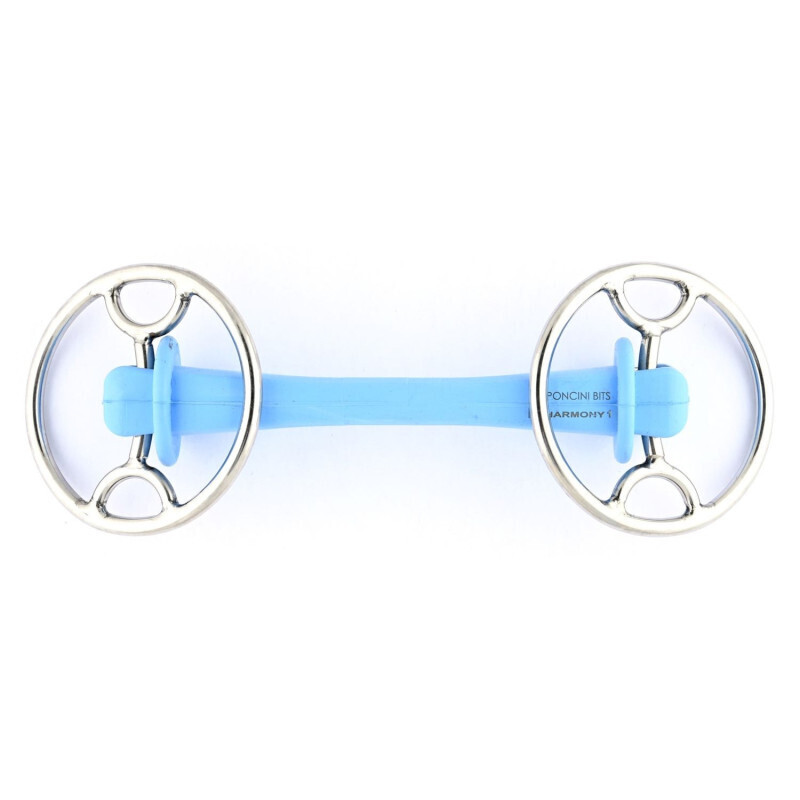Poponcini Swivel jaw, straight, flexible H1 PB-SW01
The rubber bit is soft and therefore ideal for horses with delicate mouths. Poponcini rubber bits are flexible, the aim being to distribute as much pressure as possible on the horse's tongue and bars in order to offer optimum comfort and contact between rider and horse. It has the particularity of having a 'square' barrel with rounded corners to widen the area in contact with the tongue and palate. Poponcini bits have mini washers moulded into the bit for greater comfort. The straight bit provides symmetrical contact with the mouth so that the horse wants to come a little closer to the bit. That's why some riders use them as soon as they are broken in. Poponcini bits are reinforced with a brass ring to allow the rings to turn easily. They also have mini washers moulded into the bit for added comfort. The Swivel bit is a lowering bit. The rider can hang the reins in a fixed position on the lower ring, or in the traditional way on the main ring (for a softer action). The Swivel has a lighter action than the Pessoa bit, its leverage action being more distinct. In addition, its lifting action can be used on horses that lean more on their bit. It also offers good framing thanks to the central fixing of the barrel on the rings.
Rubber: This alloy is soft, making it very comfortable for the horse. It is ideal for horses that are sensitive and/or have difficulty making contact. The rubber bit remains at room temperature, which helps with bit acceptance. It is nevertheless important to obtain a minimum of salivation from the mouth for optimum use and to avoid any risk of overheating due to the rubber rubbing in the mouth. There are 3 levels of bit flexibility: Harmony A, 1 and 2. The Harmony 1 is the most popular. It bends to 90 degrees. The barrel is reinforced with a flexible steel cable. This model has metal rings where the rings pass through the barrel. Handcrafted.
Warning: This material is vulnerable and is not guaranteed by the manufacturer against wear due to bites. We strongly advise against using a bit that is too damaged, as this could injure the horse's bars, tongue and palate.








